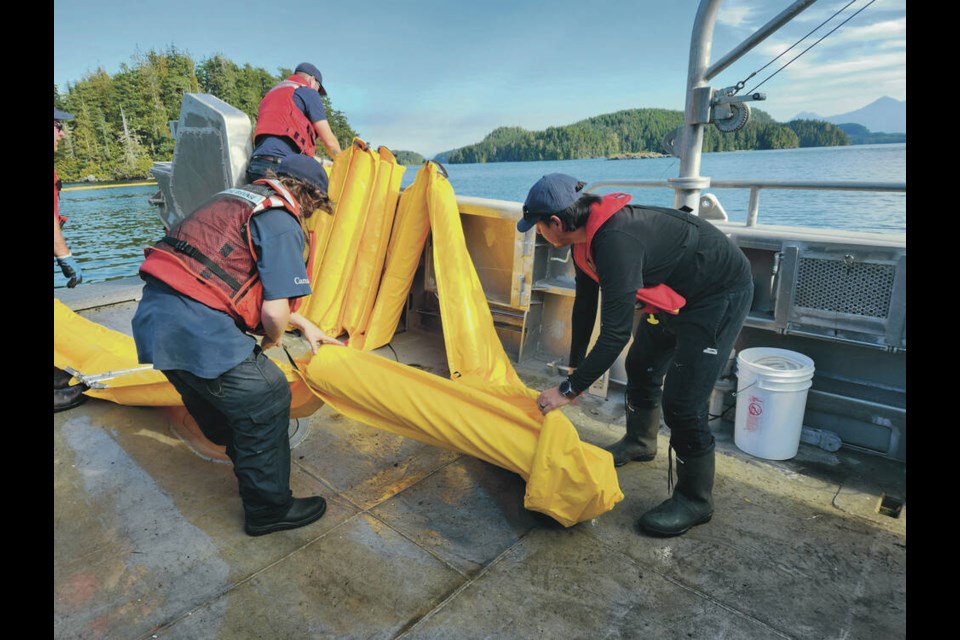David Cliffe quit school when he was 12 and went to work on a commercial fishing boat.
He fished for the next four decades until the boat was destroyed by fire and he was left with the vexing question of what to do next.
He had always loved being on the water, but was concerned about the toll taken on the environment in the traditional territories of his Wei Wai Kum First Nation around Campbell River.
He had seen the disappearing salmon, fuel spills, wrecked boats and damage from logging — and he knew he had to be part of a solution.
So the 52-year-old father of four went back to school, taking the intensive five-month Indigenous Guardians technicians training program designed to give him the skills to play a role in protecting the increasingly fragile lands and waters of his homeland.
Cliffe graduated from the course offered by Vancouver Island University in March 2020 and is now the head Guardian of his nation, leading a team of nine in the Campbell River area.
“It changed my life … it makes you see the bigger picture of what’s going on and how we can all help by doing the little things that will help the environment,” he said.
The Guardians in Cliffe’s area and other parts of the coast now work with forestry companies to protect old-growth cedars and key habitats, with the coast guard on search and rescues, oil spills and derelict boats, and with federal fisheries on enforcement and stream and coastline revitalization projects.
They are often liaisons between elders in their nations and government organizations and private companies. The Guardians also go into schools to talk with students and plant the seeds of conservation with the next generation, said Cliffe.
“We bring the cultural knowledge together with the science for the best outcomes,” said Cliffe. “That’s one of the biggest things I learned — how to communicate, how to listen, how to understand — and then work together with everyone involved.”
On Wednesday, the Nanwakolas Council, made up of six First Nations from the north and central Island and central coast, and Vancouver Island University — supported with funding from the Ministry of Post-Secondary Education and Future Skills — announced a renewal of the Indigenous Guardians program during a ceremony at the legislature.
Sixteen new students have enrolled in the program, which starts this month and continues to spring, Monday to Friday seven hours a day. So far, 48 have graduated from four programs since 2017.
The students learn how to ensure compliance with rules and regulations to safeguard water, fish and animal health, and get training in construction-site monitoring, vegetation, soil and wildlife sampling using field equipment, following safety protocols, collecting data, reading maps and navigating.
There is also training in everything from use of outboard motors and electrical systems to environmental legislation and communication skills.
Students learn about their own Indigenous history, and the impact of colonialism, including the residential school system.
Nanwakolas Council president Dallas Smith said First Nations are taking on increased responsibilities for environmental governance and management as they exercise rights in their territories — which means many more Guardians are needed to monitor forestry harvesting, hunting and protection of cultural sites, to gather data on key species, rehabilitate damaged habitat, assess resource development proposals, and ensure compliance with land-use plans and regulations.
“We need Guardian capacity to respond to crises like the sinking of barges and tugs carrying oil and other toxic pollutants,” Smith said.
“Having stable, well-funded training programs in place like the [First Nations Stewardship Technicians Training] to support that exponential increase in capacity will serve to benefit everyone on the coast.”
Students in the program range in age from 18 to 58, and all carry the burden of colonial trauma in some way, said Smith.
The council said the program can lead students to seek additional education for careers in forestry, biology, archaeology, environmental management and other fields.
“The program is something I’ll be able to build on for my whole life,” said Cory Frank, who graduated in 2017 in the first cohort of students and is now the Guardian manager of the K’omoks First Nation.
“I encourage everyone to take all the courses. I tell them, take everything. You’ll never regret it.”
Christina Speck-Green, a 2021 graduate, said she felt appreciated in the program. “I was encouraged to be myself without any hesitation.
“That was a first for me in a learning experience. I never enjoyed education nearly that much in the past.”
Training for the 20-week program is in Campbell River and the tuition fees, resources and most travel and accommodations are covered by the province.
Applications can be obtained through the Nanwakolas Council at 250-286-7200 or by emailing [email protected]
>>> To comment on this article, write a letter to the editor: [email protected]



